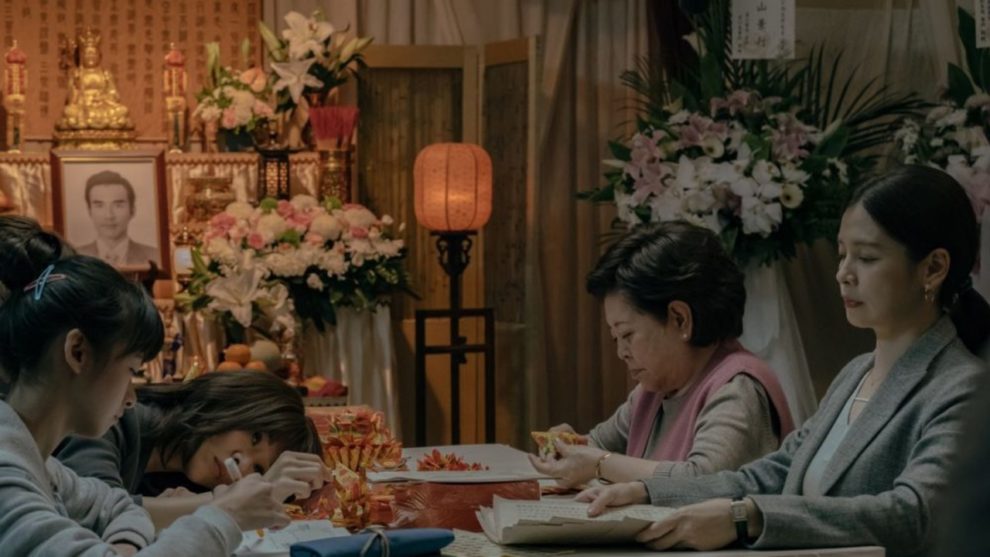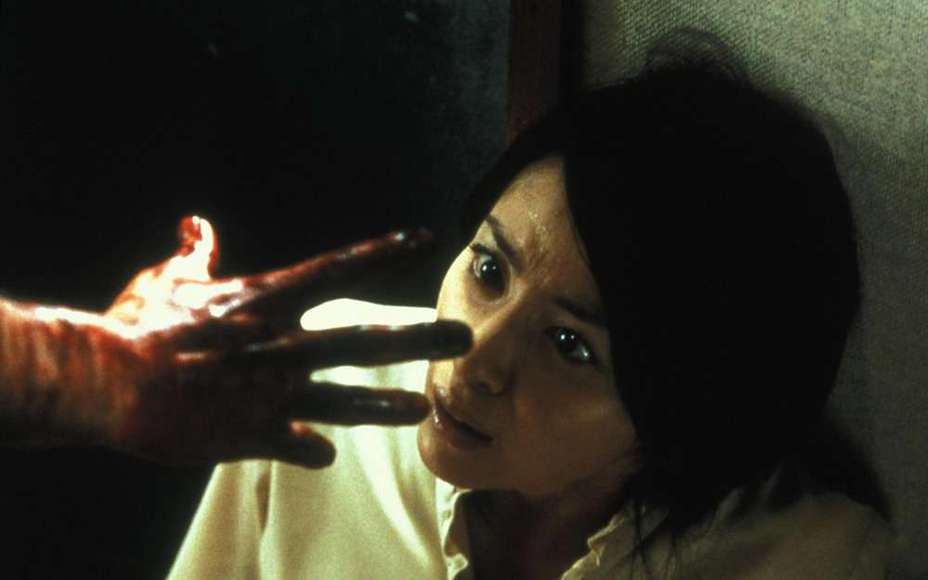Written by Jamie Loh
Grieving is never easy, but what if you had to mourn someone you no longer know? “Little Big Women”, directed by Joseph Hsu, is a story of memory, loss, finding closure, and letting go. Inspired by his own family's story—Hsu's own grandmother had to mourn for her husband alongside his extramarital lover—the film is an extended version of his 2017 short film, “Guo Mie”.
On the day of her 70th birthday, renowned restaurant owner, Ms. Lin (Chen Shu-fang), receives news that her long-estranged husband, Chen Bochang (Lung Shao-Hua), has passed away in Taipei. As her family begins their preparations for the funeral, she insists on continuing with her celebrations. The dinner is attended by many relatives and her three daughters: Wanching (Hsieh Ying-Hsuan), a free-spirited professional dancer, Yu (Vivian Hsu), a plastic surgeon, and her youngest daughter, Jiajia (Sun Ke-Fang), who has taken over the restaurant. Ms. Lin's granddaughter, Clementine (Buffy Chen), is also present. Eventually, Ms. Lin steps onstage to sing a song that is titled after the film, “孤味”. With a shaky voice, she seems to be sending well-wishes towards her deceased husband, saying goodbye as the song comes to an end: Farewell, the lover / Who isn't meant to be for me / … / I hope you bloom nicely / like flowers in spring.
In the aftermath of their father's death, the family's unspoken history begins to unravel. The daughters grapple with their own struggles with family, health, and romantic relationships, but the narrative is largely centered on Ms. Lin's past with Mr. Chen. Through a series of flashbacks, we see Ms. Lin heading to a rundown hotel with Wanching, Yu, and a meat cleaver in hand, attempting to catch her husband with his mistress. We also see the estranged couple's final meeting with each other. Mr. Chen visits Tainan with divorce papers, but Ms. Lin never signs them.
It's clear to see that Ms. Lin is feisty, stubborn, and spiteful at times. But despite it all, she loves her family deeply. And most heartbreakingly, beneath her facade of indifference and anger, Ms. Lin still desperately longs for her husband or some form of closure to their relationship. In a taxi, she imagines leaning on Mr. Chen's shoulder as she falls asleep in the wash of the dreamy, violet-hued glow of the streetlights. In reality, she was sitting next to her youngest daughter. Her feelings towards her husband are haunted by what-ifs and guilt, the source of which is made clear through the course of the film.
Nothing is grand in “Little Big Women”. It is, after all, a story about an ordinary family's attempt to navigate loss and the complexity of human relationships. But Hsu's work does turn the insignificant into something beautiful. In celebration of everyday sights and sounds, Blaire Ko's compositions are paired with the scenery of the bustling wet market, the idyllic village of the mourning hall, and the narrow alleys of the Lins' neighbourhood, giving the film a distinctively Taiwanese flavour.
What makes “Little Big Women” so powerful is that it tugs at the heartstrings quietly, so subtly that it almost escaped my notice. But the stories of the women—in fact, most of the major characters in the film—lingered in my mind even after the credits had rolled. The melodrama never feels too unrealistic or stifling, with genuinely tender moments being shared between the three generations of women. With their faces awashed with sunrays and the warm glowing lights of home, these scenes coexist with the sometimes sudden revelations of the Lins' buried secrets. The film also knows when to be playful. Clementine provides snide commentary and comedic relief, all as the innocent, youngest member of the family. During a meal with all of her sisters and her niece, Wanching vocally teases her mother about ‘loving' her father when he visited Tainan, which culminated in Jiajia's birth exactly 10 months later. At this, Ms. Lin can only bashfully look away in embarrassment.
Interestingly, though both versions of Hsu's work share the same title, only the 2017 short explains what the word refers to. Translated, the word 孤味 means ‘the taste of loneliness' in the Minnan language. “As long as you devote yourself to the creation of one thing, and do whatever you could, everything will turn out well. This is what we call guo mie,” says Ms. Lin of Hsu's 2017 film. The omission of this explanation in “Little Big Women” doesn't make the film any less powerful or striking but allows for open interpretations of the title. For one, I understood the title as an elderly woman's unspoken loneliness, regrets, and guilt in her last days in life.
At the end of the film, Ms. Lin gets into a taxi, starts up the karaoke machine and sings along to the song once more. This time, with this final reprise of “孤味”, she finally absolves herself of the painful past that she shared with her husband, and bids her final farewell to the loneliness that she has held onto for all these years.
















